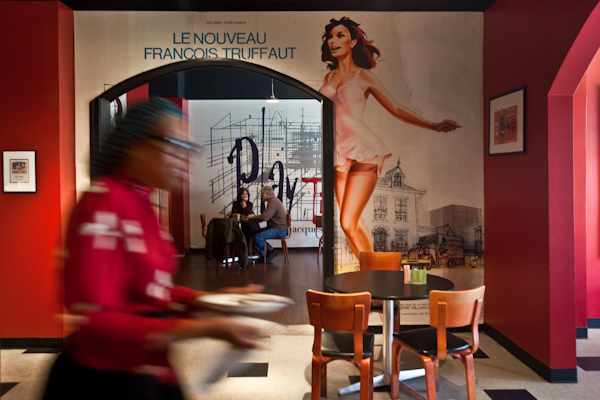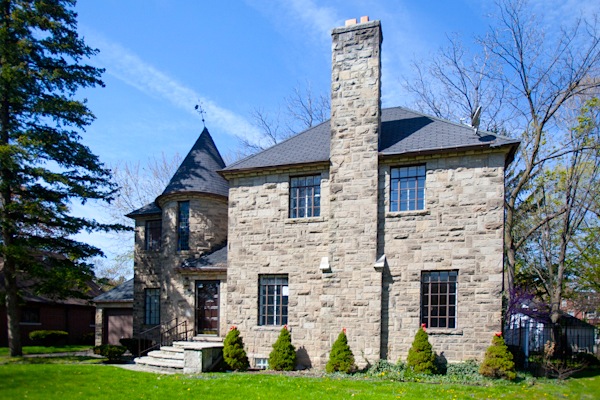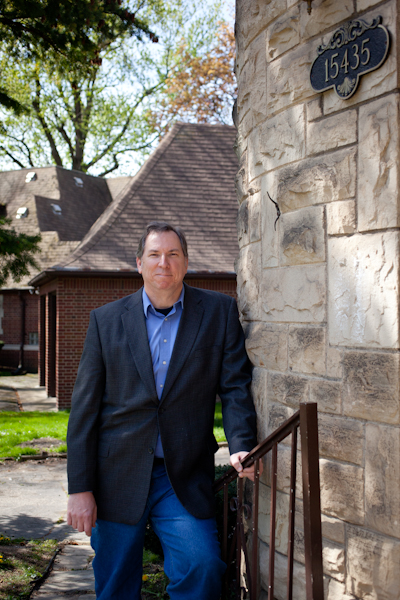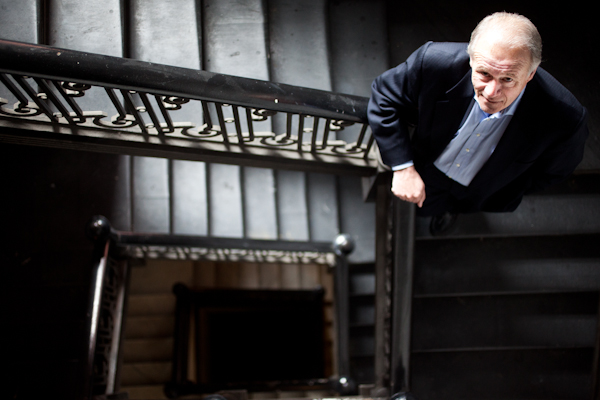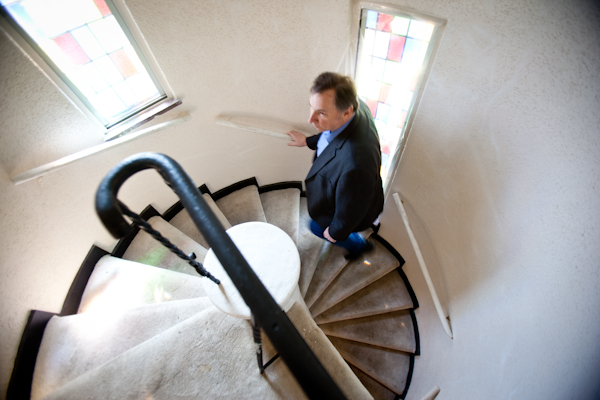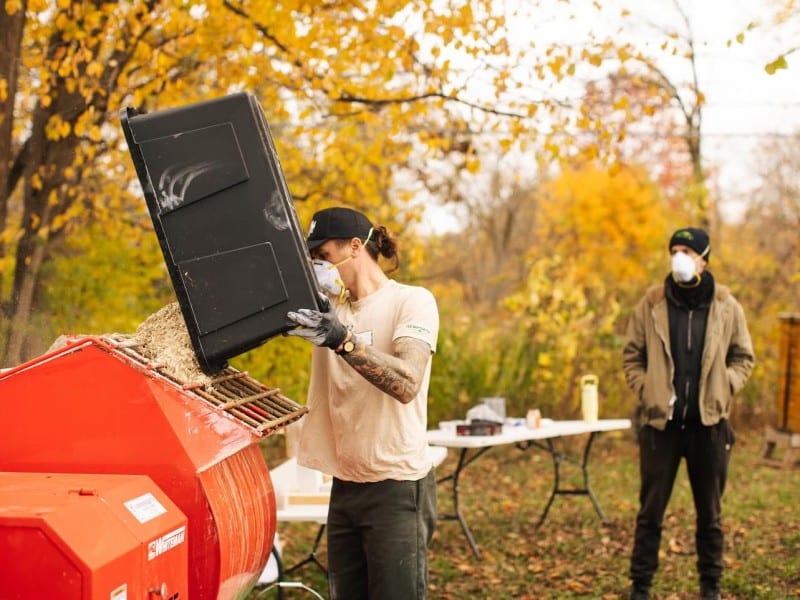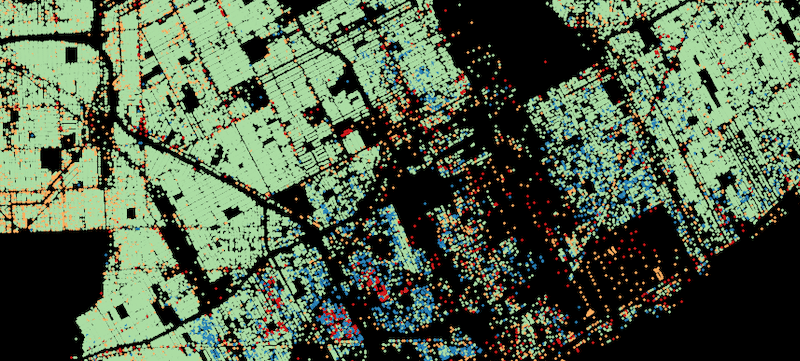Laying foundations for entrepreneurship
Behind every start-up entrepreneur is a risk-tolerant investor. In Detroit, that’s likely to be the Detroit Development Fund, which has provided loans for small businesses like Astro Coffee and Good Girls Go to Paris. Dennis Archambault adds up the details.
The DDF has been very important to districts like Midtown, but has been equally, if less visibly effective in helping restore residential housing in the city. In addition, the organization has provided technical support for 145 minority-owned companies in Detroit, with services ranging from accounting and marketing to project management.
“Our goal is to grow companies in the city,” he says. “These are not low risk companies that we are investing in. It seems if we’re going to help them, we should do it at the most reasonable rates.”
Through major grants from several local and national foundations such as the Ford Foundation, Kresge Foundation, Knight Foundation, and Community Foundation for Southeast Michigan, the DDF has provided loans to businesses like Good Girls Go to Paris, Astro Coffee and Green Way Fueling.
In 2006, the DDF established a real estate redevelopment program. At the time, there were around 21,000 abandoned homes in Detroit. The DDF funded and financed several private, for profit residential construction companies that bought properties and restored them to marketability. DDF extended the program to larger construction companies as well.
Since 2006, 500 homes have been restored through loans from the DDF, which targets loans 50 homes in 2012. That doesn’t seem to be a lot in a city with so many vacant houses, but like the DDF’s individualistic approach to small business lending, every project matters in Detroit. The “Downpayment Assistance Program,” funded by the DDF, provides up to $10,000 as a forgivable loan — zero interest, zero payable if the homeowner remains in the house for five years.
“The important thing about doing that is that you can’t do it scattershot,” Waters says. The DDF has loaned Grandmont Rosedale Development Corporation (GRDC) $650,000 for the project — the largest loan in its portfolio. The strategy is to select homes in viable blocks. “You’re doing a house on a block where there may be one or two abandoned homes,” he adds. “You’re renting them or selling them. It has a positive effect on that block.” The house will sell for a more reasonable amount and help stabilize the overall block, Waters says.
“That’s one of the issues in Detroit — trying to stabilize values of homes,” says Tom Goddeeris, GRDC executive director. “A big part of what we do and what the Detroit Development Fund is assisting us with is we purchase vacant residential houses and renovate them and sell them to new homeowners. We’ve been doing that for years. A few years ago, the housing market changed dramatically. We saw a sharp increase in foreclosures and vacancies in our neighborhood, which has always been a stable community. We were looking to greatly increase our ability to purchase these foreclosed homes, renovate them, and get them reoccupied. Part of the problem we faced was that we couldn’t get loans to do that. Typically, banks were only not lending to homeowners to purchase homes, they certainly weren’t lending to organizations like ours.
“The Detroit Development Fund, at the time, was the only entity in town that was willing to provide construction lending to us to continue doing what we had been doing and also to increase the volume of what we were doing. In a lot of ways, if it wasn’t for the Detroit Development Fund, our program probably would have come to a halt.” Goddeeris says the GRDC received a grant from the Kresge Foundation, which combined with a line of credit from the DDF enabled Grandmont Rosedale to purchase over 20 houses. Thirteen have been sold to date and a few sales are pending. “They’ve really been crucial to our ability to do that project. That kind of lending just doesn’t exist any more,” Goddeeris adds.
From the DDF’s new offices in Paradise Valley’s Harmonie Park, Waters has a good view of Detroit, but it’s from within a cluster of buildings, not from a distance or looking down from a high place. He sees the city from within and at street level. He’s empathetic with the dilemma faced by Detroit business and residential customers, but he also looks at the world through a business lens. Does Detroit have the vitality, specifically the entrepreneurial vitality to make it? “It’s pretty solid,” Waters attests. Most of the companies supported through the DDF are “lifestyle companies,” that generate $500,000 to $2.5 million annually. That’s a good entrepreneurial foundation for the community.
Waters, from personal experience, knows that there is no straight line to business success. “Good companies never go from A to Z like that. You go around the bend, backwards a few steps. We’ve found people who are flexible enough to do it. Sometimes it takes capital; that’s what they lack. That’s the hardest part in this town now.” While the lending climate has improved, Waters says there remains a significant need for other sources of capital. “We can’t do it all.”
Although Waters lives in Ann Arbor, he has developed a feeling for Detroit that doesn’t affect his business judgment but does affect his personal feelings about the city.
“I don’t think I’ve been in a city that has been beaten up so bad (as Detroit),” he says. “This is a tenacious group of people who seem to withstand anything.” How do you explain it? “Years of getting beat up, I guess,” Waters says, “sticking your neck out and moving forward. The businesses we deal with here are tough people — the ones who are successful. They keep pushing forward no matter what.”
Freelance writer Dennis Archambault is a longtime contributor to Model D.
Photos by Marvin Shaouni
